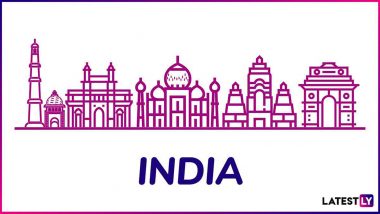New Delhi, Apr 14 (PTI) Extensive collaboration is needed to combat the coronavirus pandemic and India saw the "writing on the wall" early with Prime Minister Narendra Modi taking the initiative for regional and international cooperation to deal with the crisis, Foreign Secretary Harsh Vardhan Shringla said on Wednesday.
Speaking at a session titled 'Plurilateralism Inc: The Future of Global Governance'' at the Raisina Dialogue here, Shringla said COVID-19 crisis has global and regional dimensions as clearly it is not within the capacity of any one state to deal with it.
"It needs very extensive cooperation and collaboration. In our case, we saw the writing on the wall fairly early. It was Prime Minister Modi who convened the meeting of SAARC leaders even before the lockdown was thought of early in March and said 'let's see how we can cooperate regionally in dealing with this crisis'," the foreign secretary said.
Noting that this was the first time the SAARC met in quite some time, Shringla said it led to "some very good" results because the leaders decided to establish a Covid emergency response fund.
"It was a great example of regional cooperation, even if countries did not see eye to eye on political and security issue, they could come together and work on a humanitarian issue of this nature," he said.
The prime minister also took the initiative of proposing a G20 extraordinary summit on the Covid crisis to which the chair, Saudi Arabia, readily agreed, he said.
The Summit took some far-reaching measures designed to support developing countries in dealing with the unprecedented crisis, including through the Debt Service Suspension Initiative, Shringla said.
In his intervention, the PM noted that the G20, which was created for financial and economic crises, was meeting for the first time to deal with a humanitarian crisis, the Foreign Secretary said.
Talking about the first Quad summit, Shringla said it announced a vaccine initiative, whereby vaccines manufactured in India, financed by the United States and Japan, would be supplied across the Indo-Pacific, in particular south east Asia, with Australian last-mile logistical support.
India is a part of multiple groupings, beginning with the UN to plurilateral constructs and trilaterals and so on, Shringla said.
"As far as we are concerned, we would like to work in close cooperation with all concerned," he said.
In his remarks at the session, Shringla also said there is a need for reformed multilateralism.
"Where it is convenient for India to engage, we will engage, be it in the multilateral or plurilateral format," he said.
Organised by the Observer Research Foundation (ORF), a think-tank, in partnership with the MEA, Raisina Dialogue is India's premier conference on geopolitics and geo-economics, and its sixth edition is being held from April 13 to 16.
(The above story is verified and authored by Press Trust of India (PTI) staff. PTI, India’s premier news agency, employs more than 400 journalists and 500 stringers to cover almost every district and small town in India.. The views appearing in the above post do not reflect the opinions of LatestLY)













 Quickly
Quickly


